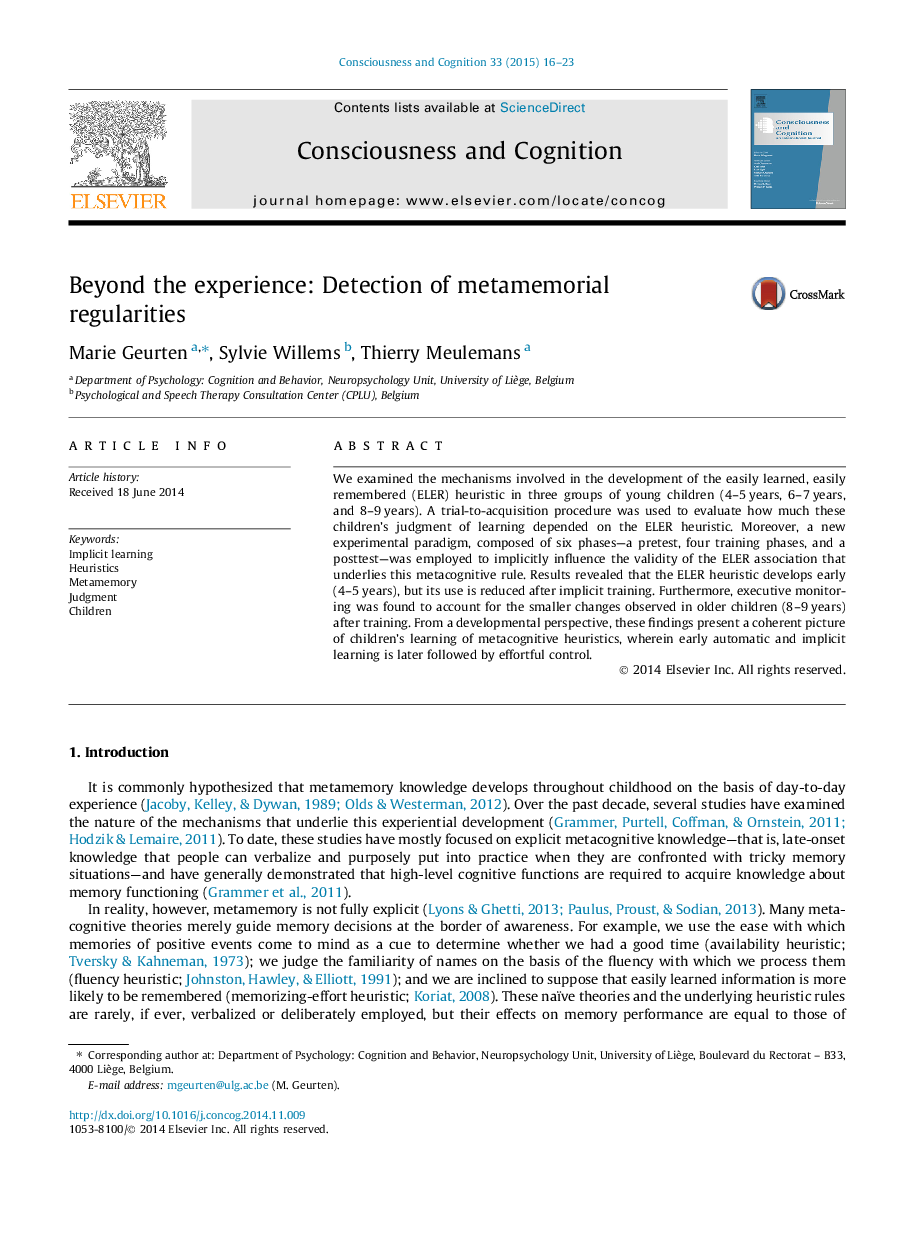| Article ID | Journal | Published Year | Pages | File Type |
|---|---|---|---|---|
| 7289412 | Consciousness and Cognition | 2015 | 8 Pages |
Abstract
We examined the mechanisms involved in the development of the easily learned, easily remembered (ELER) heuristic in three groups of young children (4-5Â years, 6-7Â years, and 8-9Â years). A trial-to-acquisition procedure was used to evaluate how much these children's judgment of learning depended on the ELER heuristic. Moreover, a new experimental paradigm, composed of six phases-a pretest, four training phases, and a posttest-was employed to implicitly influence the validity of the ELER association that underlies this metacognitive rule. Results revealed that the ELER heuristic develops early (4-5Â years), but its use is reduced after implicit training. Furthermore, executive monitoring was found to account for the smaller changes observed in older children (8-9Â years) after training. From a developmental perspective, these findings present a coherent picture of children's learning of metacognitive heuristics, wherein early automatic and implicit learning is later followed by effortful control.
Related Topics
Life Sciences
Neuroscience
Cognitive Neuroscience
Authors
Marie Geurten, Sylvie Willems, Thierry Meulemans,
